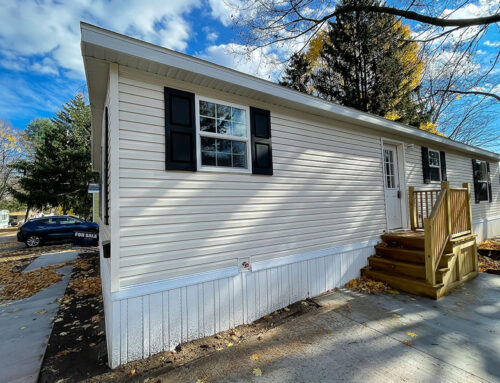I don’t know if you remember this, but back in 2011, an earthquake with a 5.8 magnitude on the Richter Scale struck Virginia about 40 miles east of Richmond. There weren’t any major injuries or damage reported that I know of but, we could feel the tremors all the way up here in New York. It was unnerving, to say the least. That earthquake got me thinking about whether I was adequately insuring my NYC investment property against the possibility of natural disasters–or anything else for that matter.
What to Look For When Insuring Your NYC Investment Property
Before the quake in Virginia, it’d never occurred to me to consider earthquake coverage for my investment properties. It turns out that earthquakes in New York City are rare, to be sure, but not inconceivable. The northeast has experienced earthquakes up to a staggering 7.0 magnitude. The likelihood of New York experiencing a 6.5 earthquake is 40%. And though the city itself hasn’t been the epicenter of a quake since 1884–before magnitudes were measured–fault lines run throughout the metropolitan area, with one extending along Manhattan’s 125th Street. If an earthquake hit here, there would be a lot of damage because many of New York’s housing is old–and not reinforced with steel like in earthquake-prone California–and the soft soil would amplify tremors.
The first thing I did was contact my broker, Mark Gannaway of Arcana Insurance Services, LP, to make sure that I had the right property insurance for flipping houses. We discussed whether I needed to expand my property coverage to other potential problems specific to New York that I hadn’t previously considered. Rather than having an all-risks policy in place, I’d chosen to implement named peril protection to save money. And, just as it sounds, this type of coverage only protects against losses caused by the events named in the policy. So, though I had fire, electrical, and water damage caused by plumbing, heating, and air conditioning systems covered, I was exposed elsewhere. Not having enough protection for my investments during a renovation, or even after when I’m trying to sell, didn’t help me feel secure. The last thing I wanted was to lose money on repairs because I tried to save money on insurance.
So, Mark recommended we add additional items to my real estate investor insurance policy that would cover me if a disaster–natural or not–hit one of my investment houses. I added earthquake coverage since it’s inexpensive for low-risk areas like New York and a few other options as well. If you invest in New York City real estate, you might want to take a look at these options too.
- Smoke. New York regularly ranks among the top 25 cities with a high risk of house fires. Even if you have protection against fire damage on your investor policy–which you should–the damage caused by smoke may not be included. If it is included, be sure to discuss with your broker whether or not you’re covered for the damage to items exposed to smoke or if you’re only covered for the cleanup of smoke and ash. This is an important distinction to make since smoke can contaminate everything from fixtures to walls, stretching your pocketbook thin if you have to pay for their replacement.
- Vandalism and Theft. Every large city has problems with vandalism and theft, and New York is no exception. Unfortunately, many real estate investors make the mistake of forgoing vandalism and theft coverage either because they don’t own the property for very long, have tenants living at the property, or simply don’t think a house under renovation is an attractive target. But both types of losses can occur anytime and cost a pretty penny.
- Inclement Weather. New York is home to long, often harsh, winters. Sometimes conditions are so severe that investors incur significant losses on their properties, so insuring against inclement weather is a good idea. But, because insurance companies sometimes differentiate between types of bad weather and the damage they can cause, it’s also a good idea to read the fine print. Property loss caused by hail, sleet, windstorms, and the weight of snow and ice might be listed separately. If you’re investing in New York real estate, you might want coverage for each.
- Flooding. Before Hurricane Sandy hit the east coast in 2012, few New York City homeowners, or real estate investors, would have thought that their properties were at risk for flooding. And because the government maps marking regional flood zones are out of date, reliably determining flood risk may be difficult to do. But your broker can pull up the data cheaply. In the wake of Hurricane Sandy, it might be better to simply get a quote, then get coverage, to protect your property and your bottom line from a worst-case scenario like this.
How you choose to protect your investment property is, ultimately, up to you and your broker. But make no mistake: getting the right policy, and the right amount of coverage, is critical to protecting your ROI–and it doesn’t have to cost you an arm and a leg. Many policy add-ons are inexpensive, making the cost/benefit proposition worth it. Disasters come in many forms and, if you aren’t prepared when they do, anything from frozen pipes to air conditioning overflow or even deadly hurricanes can saddle you with surprise repair costs that can sink your returns. So, make the extra effort to get the extra protection.
Securing Protection for Your Properties and Your Business
For me, securing the right amount of protection for my investments, and ensuring my peace of mind, began with having access to a broker I trusted. In fact, being aligned with top professionals, from contractors to real estate agents, has been a vital part of keeping my real estate investing business running smoothly and safely all these years. And, it was when I became an independently owned and operated HomeVestors® franchisee that my network of experts, and my own investing expertise, grew. When I think about it, if I could measure just how much my success has been impacted by pros like Mark Gannaway since joining HomeVestors®, I’d have to say it’s off the charts.
When it comes to ensuring your real estate investments, make sure you are getting the best possible advice. Surround yourself with the pros by contacting HomeVestors® today.
Each franchise office is independently owned and operated.
Contact
"*" indicates required fields





